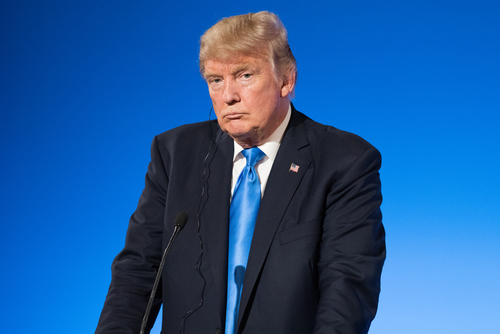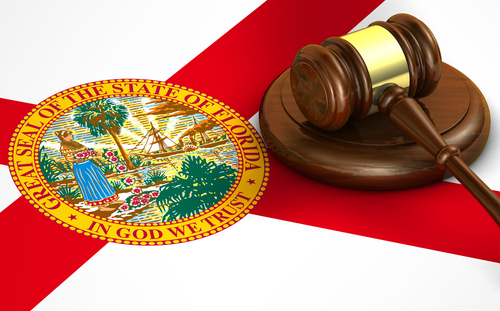2nd Circuit gives Trump chance to avoid rape defamation suit with ruling on employee status
Tort Law
2nd Circuit gives Trump chance to avoid rape defamation suit with ruling on employee status
September 29, 2022, 12:33 pm CDT
Former President Donald Trump in July 2017. Photo from Shutterstock.
Updated: A federal appeals court ruled Tuesday that former President Donald Trump was a government employee when he denied rape claims by writer E. Jean Carroll, a decision that could shield Trump from personal liability in the woman’s defamation lawsuit.
The 2nd U.S. Circuit Court of Appeals at New York said the next step is to determine whether Trump’s rape denials were made within the scope of his employment. The appeals court certified that question to the District of Columbia Court of Appeals to determine the answer.
Law360, Courthouse News Service and the New York times are among the publications that covered the decision. How Appealing links to additional coverage and the Sept. 27 opinion.
The federal Westfall Act provides that the United States should be substituted as a defendant in tort lawsuits against federal employees acting within the scope of their employment. The U.S. government has intervened in Carroll’s suit to assert that it should be substituted for Trump as the defendant in Carroll’s suit.
Carroll had alleged in her memoir that Trump raped her in the dressing room at Bergdorf Goodman in Manhattan, New York City, in the 1990s. Trump repeatedly denied the allegations in 2019, according to the 2nd Circuit opinion. In an interview with the Hill, he is quoted as saying: “I’ll say it with great respect: No. 1, she’s not my type. No. 2, it never happened. It never happened, OK?”
Carroll claims that Trump’s remarks were defamatory.
Carroll’s lawyer, Roberta Kaplan, has previously said her client would likely have no remedy if the government is substituted for Trump because the law does not allow defamation claims against federal officials acting in their official capacity.
But on Sept. 20, Kaplan notified the judge in the defamation case that she intends to file a separate lawsuit on behalf of her client Nov. 24, the earliest possible filing date under a new law in New York. The law gives adult survivors of sexual misconduct a one-year period to bring civil claims that would otherwise be time-barred.
In a statement emailed to the ABA Journal, Kaplan referenced a dissent by Judge Denny Chin.
“As Judge Chin, the only 2nd Circuit judge to reach the merits, explained in his powerful opinion, Donald Trump was not acting within the scope of his duties as president when he defamed our client,” Kaplan says.
Chin found that Trump wasn’t protected, Kaplan says, “because he was not serving any purpose of the federal government and because the comment ‘she’s not my type’ is not something one would expect the president of the United States to say in the course of his duties. We are confident that the D.C. Court of Appeals, where this case is now headed on certification, will agree. “
Updated Sept. 29 at 1:40 p.m. to include Roberta Kaplan’s statement.






